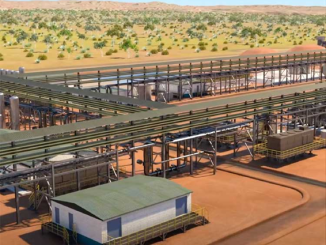By Jeffrey A. Green | Owner, J.A. Green & Company
The John S. McCain National Defense Authorization Act, signed by the President into law in August, will have significant effects on the supply chain for rare earth magnets (and tungsten) supplied to the U.S. military. Section 871 of the law puts significant new restrictions on the use of foreign magnets in the military supply chain.
The law, enacted in response to concerns about continued U.S. military dependence on China for rare earths, is largely similar to the domestic sourcing law known as the Specialty Metals Amendment (10 U.S.C. 2533b), though it differs in a few important respects. The Specialty Metals Amendment has been successful in maintaining a healthy and competitive U.S. specialty metals industry, especially for aerospace materials such as titanium and superalloys, and it is the intent of Congress that the new law, which will be codified at 10 U.S.C. 2533c, will do the same for both rare earth magnets and tungsten.
The starting premise of the law is that no covered material that was melted or produced in China, Russia, North Korea, or Iran can be sold to the Department of Defense. The covered materials listed in the statute are neodymium-iron-boron magnets, samarium-cobalt magnets, tungsten metal powder, and tungsten heavy alloy, along with any components containing tungsten heavy alloy. While samarium cobalt magnets have long been covered under the Specialty Metals Amendment, the new law affects neodymium iron boron magnets for the first time.
The use of melted or produced should be instantly recognizable to anyone familiar with the Specialty Metals Amendment: the Department of Defense has previously defined this to identify the country of origin as taking place at the place of first melt or equivalent process. In the case of magnets, this is where the alloy is melted, and the subsequent sintering operation takes place. The simple premise of the law, then, is that NdFeB and SmCo magnets produced in China cannot be used by the U.S. military.
There are, however, important exceptions to this starting presumption. Most importantly, this does not apply when materials from non-covered countries cannot be acquired at a reasonable price within the required timeframe. As a result, there may be some adjustment period as U.S. and other non-Chinese sources come online. There are also important exceptions for some commercially available off-the-shelf magnets incorporated into end items and for electronic devices. All of these exceptions exist in similar forms within the Specialty Metals Amendment. Finally, there is an exception for recycled neodymium magnets, where the first melt may have taken place in a covered country but where subsequent milling and recycling to create a new magnet takes place within the United States.
Importantly, the new law does not incorporate the qualifying country exception found within the Specialty Metals Amendment. As a result, the distributor/fabricator model that involves taking magnets produced in China and conducting subsequent processes on them in a qualifying country will not suffice under 2533c to render a magnet compliant for U.S. military needs. This will primarily be important for SmCo magnet sellers who will now have to comply with both laws.
The Trump Administration has made no secret of its desire to reenergize the industrial policy offices within the Pentagon and increase American manufacturing capabilities. The administration has previously promulgated executive orders to Buy American, Hire American and list critical minerals for monitoring by the Department of the Interior. With this NDAA provision, though, it is clear that the White House has also found an area of common interest with Congress.
The provision, in focusing on specific foreign countries of concern, is also in line with the Pentagons stated return to prioritizing great power competition after years of low-intensity conflict. The Department of Defense is awakening to the risks that the just-in-time supply chain model poses in supporting the U.S. military, and it would not be surprising to see this years NDAA as merely the start of an effort to recover manufacturing technologies and industries that were lost in the 1990s and 2000s. With due respect to photovoltaic manufacturers, this is the first major national security sourcing restriction passed into law in over a decade, and it might not be the last.
The new law will likely be implemented in acquisition regulations within the next year. The U.S. government is getting serious about supply chain security defense contractors and subcontractors will be legally required to do so as well.
Author Bio
Jeffery A. Green most recently served as Staff Director to the House Armed Services Subcommittee on Readiness. Prior to his service on Capitol Hill, Jeff served as Legislative Director for the Coalition Provisional Authority Office of Legislative Affairs, working directly with senior CPA, Department of Defense, Department of State, Office of Management and Budget and White House officials.
He has written numerous articles related to the defense industry, government procurement and strategic materials. In 2012, he founded and currently serves on the Strategic Materials Advisory Council. He serves as a member of the U.S. Magnetic Materials Association and the REE World Advisory Board. He also serves on the American Resources Policy Networks panel of issue experts.
He formed J.A. Green & Company which assists clients in meeting their government relations, business development and strategic planning goals.
For more information visit www.jagreenandco.com.



